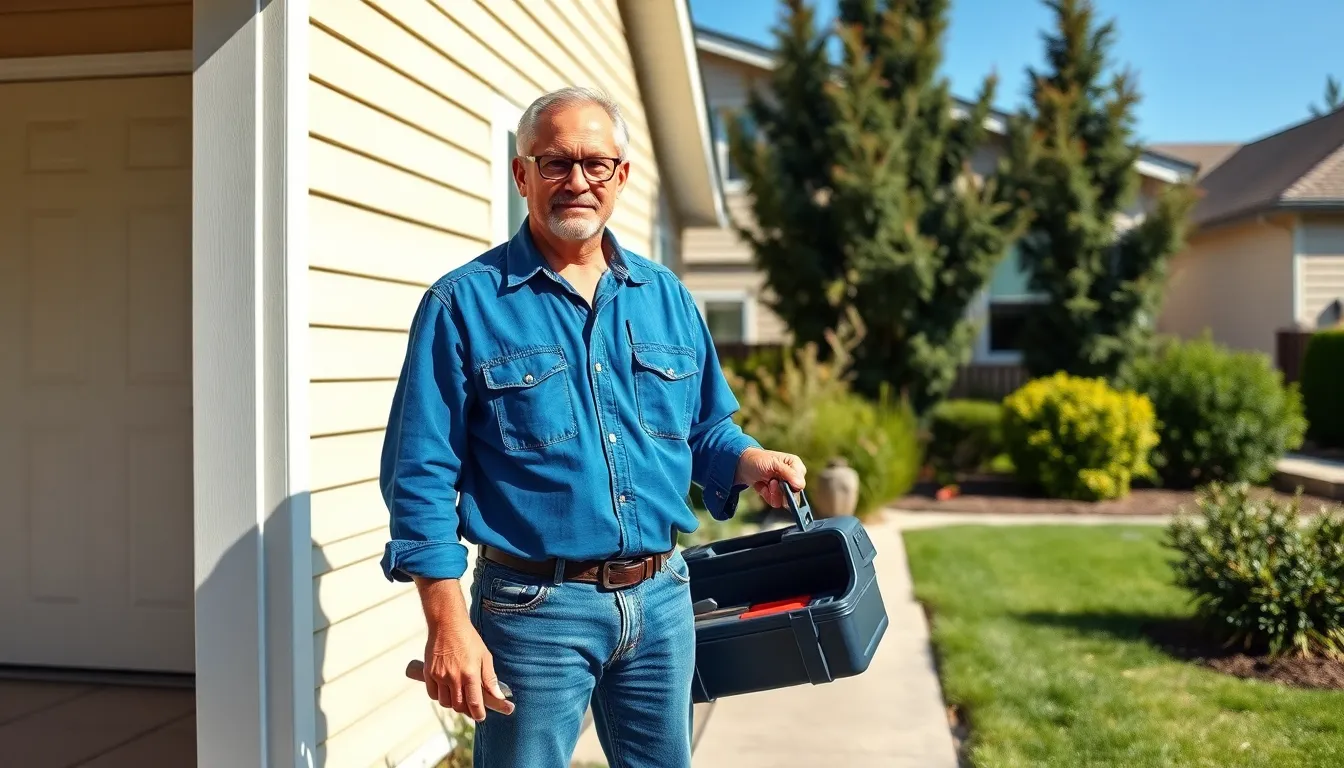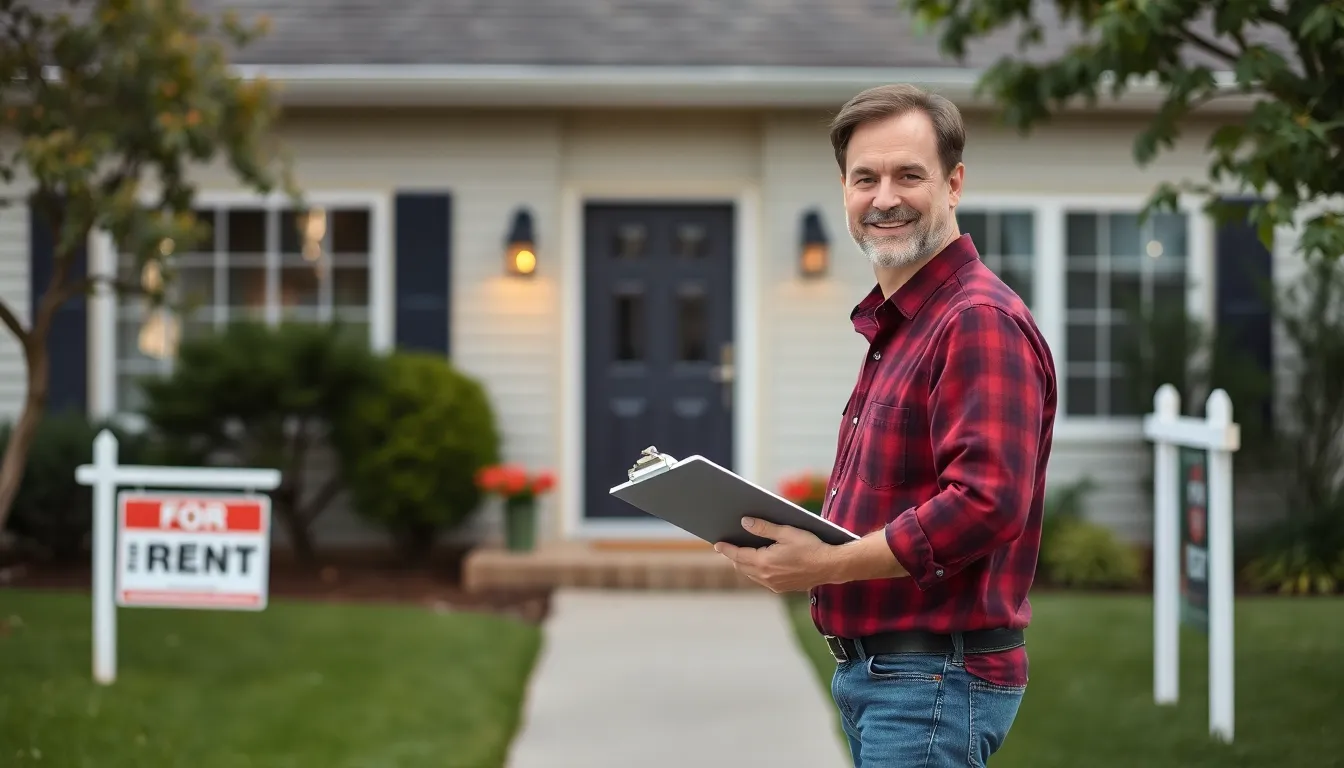Navigating the world of rental agreements can be tricky, especially when it comes to understanding landlord access rights. Tenants often feel uncertain about how much access their landlords truly have to their homes. This confusion can lead to tension and misunderstandings between landlords and tenants, making it crucial to clarify these rights.
Landlords have a legal right to enter rental properties, but this access isn’t limitless. Certain conditions and regulations govern when and how landlords can enter, ensuring that tenants’ privacy is respected. By exploring these rights, both landlords and tenants can foster a more harmonious living environment while staying compliant with the law.
Table of Contents
ToggleUnderstanding Landlord Access Rights
Landlord access rights define the circumstances under which a landlord can enter a rental property. These rights ensure that landlords maintain their properties while protecting tenants’ privacy.
Definition of Landlord Access Rights
Landlord access rights refer to the legal permissions granting landlords entry into their rental properties. Typically, landlords can enter for necessary reasons such as property maintenance, repairs, inspections, or showing the property to prospective tenants. Tenants generally receive notice before such entries occur, promoting transparency and respect for personal space.
Legal Framework
The legal framework regulating landlord access rights varies by jurisdiction. Most states require landlords to provide at least 24 hours’ notice before entering a rental unit, except in emergencies. Landlords must also have lawful reasons for accessing the property, such as executing repairs or complying with safety inspections. Violations of these regulations can lead to legal repercussions for landlords and potential remedies for tenants. Understanding local laws helps both tenants and landlords navigate access rights effectively.
Reasons for Landlord Access

Understanding the reasons landlords access rental properties helps clarify the balance between tenant privacy and property management. Access typically falls into specific categories, each governed by relevant laws.
Property Maintenance
Landlords can enter rental properties to conduct necessary maintenance. This includes routine repairs and upkeep, ensuring the property remains safe and habitable. For instance, landlords often check for plumbing issues or perform HVAC servicing. In most jurisdictions, landlords must provide tenants with at least 24 hours’ notice for non-emergency maintenance, promoting transparency and respect for tenant space.
Emergency Situations
Landlords retain the right to enter rental properties without prior notice during emergencies. Emergencies may include situations like severe water leaks or gas leaks that pose immediate safety threats. In such cases, prompt access mitigates damage and ensures tenant safety. Landlords must document any emergency entries, maintaining clear communication about the situation with tenants afterward.
Tenant Rights and Protections
Tenants possess specific rights and protections regarding their rental spaces, particularly concerning privacy and notice requirements related to landlord access.
Right to Privacy
Tenants maintain the right to privacy within their rental properties. Landlords cannot enter without proper justification or lawful reasons. This right ensures that tenants can enjoy their homes without undue interference. Tenants can voice concerns if landlords frequently enter their premises without notice or a valid reason, as this can breach their privacy rights.
Notice Requirements
Notice requirements vary by jurisdiction, but most laws mandate landlords to provide at least 24 hours’ written notice before entering a rental property. Notice must clearly state the reason for the visit. In emergencies, such as fire or severe leaks, landlords can enter without prior notice but must document such entries and notify tenants afterward. Clear communication fosters respect and prevents misunderstandings, ensuring both parties uphold their responsibilities in the rental agreement.
Variations by State
Landlord access rights vary significantly across the United States. Many states establish specific regulations governing how and when landlords can enter rental properties, reflecting local priorities regarding tenant rights and property management.
Common State Laws
Most states require landlords to provide at least 24 hours’ notice before entering a rental property, except in emergencies. For example:
| State | Notice Requirement | Emergency Entry |
|---|---|---|
| California | 24 hours | No notice required for emergencies |
| New York | 24 hours | No notice required for emergencies |
| Texas | 24 hours | No notice required for emergencies |
| Florida | 12 hours | No notice required for emergencies |
| Illinois | 24 hours | No notice required for emergencies |
Some states, like Florida, allow a shorter notice period of 12 hours. Regulations also specify that the notice must state the reason for entry. These laws aim to ensure landlords respect tenant privacy while allowing necessary property management activities.
Notable Exceptions
Certain states include exceptions to general entry rules. For instance, the following states have unique provisions:
- New Jersey: Requires advance notice but also includes provisions for immediate access in situations posing a threat to life or property.
- Oregon: Allows landlords to enter without notice in the event of a tenant’s abandonment of the property under specific circumstances.
- Washington: Permits entry in emergencies without prior notice, but mandates written notice afterward within two days.
Understanding these variations is crucial for both landlords and tenants. Knowing state-specific laws enables them to navigate access rights and responsibilities effectively, minimizing misunderstandings and potential conflicts.
Navigating landlord access rights is essential for maintaining a harmonious rental relationship. By understanding the legal framework governing these rights tenants can better protect their privacy while landlords can manage their properties effectively. Clear communication about access requirements fosters mutual respect and minimizes conflicts. As laws vary across jurisdictions it’s crucial for both parties to stay informed about their rights and responsibilities. This knowledge not only empowers tenants but also helps landlords fulfill their obligations, creating a balanced and respectful rental environment.



